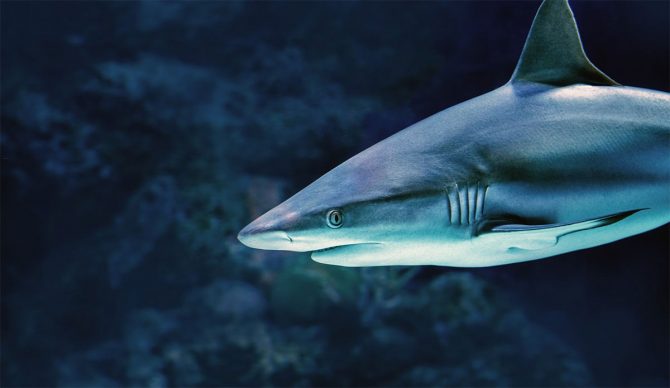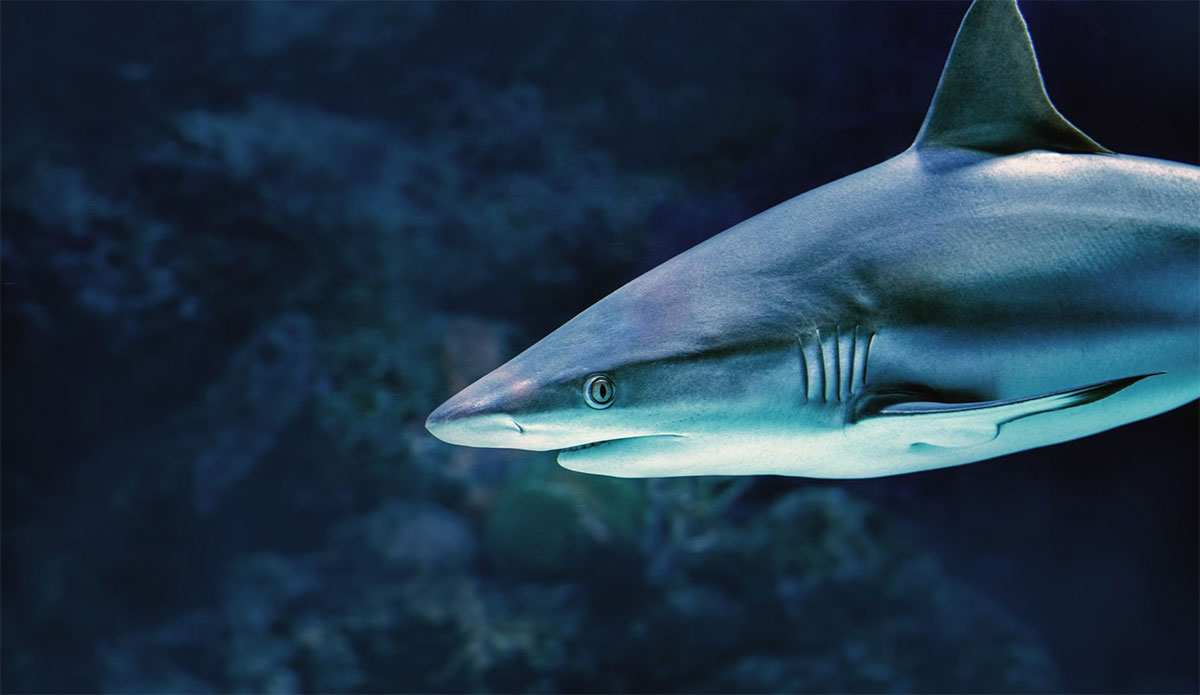
A gray reef shark in the Cairns aquarium. Photo: David Clode//Unsplash
![]()
They may strike fear in humans, but sharks are more often the ones in danger. Since the 1970s, they have faced a steep decline, with shark populations going down 70 percent due to shark finning, bycatch, overfishing, habitat destruction, pollution, and climate change. As a result, 74 species of sharks are considered at risk by the Convention on International Trade in Endangered Species of Wild Fauna and Flora (CITES), and therefore international trade in their products is banned or heavily regulated.
Despite all that, shark meat is still available in grocery stores. To complicate matters further, in a new study, published Wednesday in the journal Frontiers in Marine Science, researchers found that a shocking amount of the shark meat available in American grocery stores came from endangered species.
“We found critically endangered sharks, including great hammerhead and scalloped hammerhead, being sold in grocery stores, seafood markets, and online. Of the 29 samples, 93 percent were ambiguously labeled as ‘shark,’ and one of the two products labeled at the species level was mislabeled,” Savannah J. Ryburn, a researcher at the University of North Carolina at Chapel Hill, said in a press release.
The study authors purchased 29 shark products found in the United States. Of the samples, 19 were fillets sold in grocery stores, seafood markets, and Asian specialty markets (mostly in North Carolina) and 10 were ordered online as “jerky.” Most of the samples (27 of 29) were ambiguously labeled as “shark” or mako shark, but not a specific species.
The products were then DNA barcoded to determine the species identities. In the 29 products, 11 different species of shark were found, including three species listed by the IUCN as Critically Endangered: great hammerhead, scalloped hammerhead, and tope. To add insult to injury, of the two samples that were labeled with a species, one turned out to be mislabeled. The endangered species accounted for a shocking 31 percent of the samples.
Not only are there endangered species of shark available in stores, but some of them could be dangerous to consume, as well. Three species found in this study, scalloped hammerhead, great hammerhead, and dusky smooth-hound shark, are known to contain high levels of mercury and methylmercury.
So, what should we do about this? “Sellers in the United States should be required to provide species-specific names,” added Ryburn. “And when shark meat is not a food security necessity, consumers should avoid purchasing products that lack species-level labeling or traceable sourcing.”

